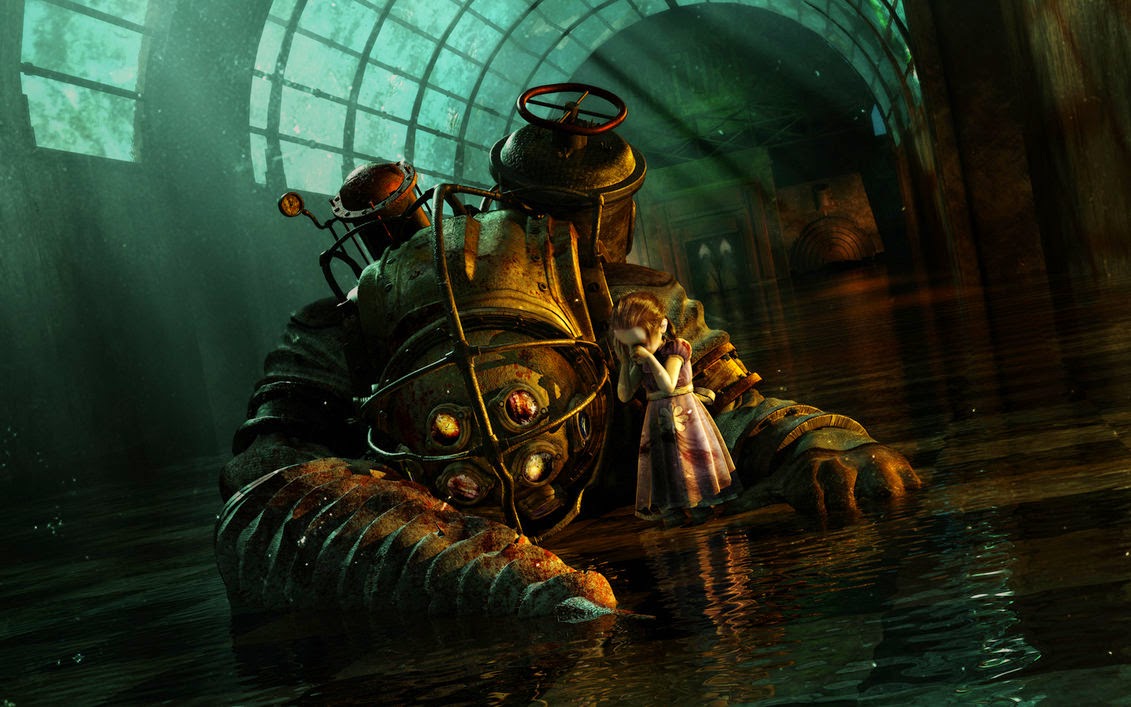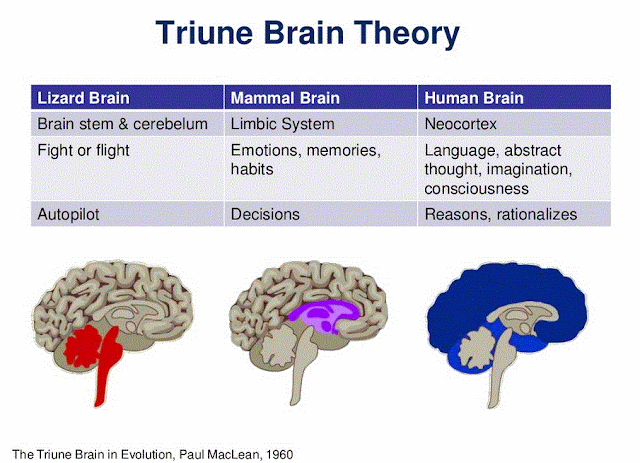The idea of heaven is a strange thing. Depending on your perspective, it’s either a dream come true (“Do what I say and you’ll get a reward!”) or a threat from a psychopath (“Do what I say and you won’t be tortured!”).
Religious experts from St. Augustine to Kirk Cameron generally agree on a couple things, though: heaven involves “perfect happiness” and “meeting God face to face,” though it’s not immediately clear what those two things have in common.
Like the latest Apple product, heaven makes grandiose claims while a slick marketing campaign villainizes anyone who questions its logic. But glittery promises and veiled threats should not deter us from carefully weighing its offer. After all, for a supernatural dreamland of perfect joy, heaven sure has some questionable side effects….
1) No More Physical Pleasures.
Jewish, Christian, and Muslim scriptures all clearly state that heaven is ultimately a material place where we’ll have some form of a material body, but people generally ignore that part, because “heavenly bliss” is very hard to reconcile with “armpit farts.” Most people envision heaven as a purely spiritual realm of immaterial souls, where we can finally leave behind our sweating, pooping, creaking bodies, along with all the materialistic dreck of the modern world. “You can’t take it with you,” as they say: the pearly gates won’t open for bacon or books or reruns of Frasier.
It’s true that our bodies begin a long, unpleasant decline from age 30 or so onwards (spoiler alert, kids). The body, formerly our eager partner in life’s adventure (Climb these stairs, body! Lift this burden! Keep down this vodka!), soon turns traitor and mocks our rickety efforts to rise from the sofa in under two minutes. It’s easy to start believing that our mind is something separate from our body, trapped inside like yowling cat in a box. But of course the mind is physical too, and is subject to the same gradual decay.
Preachers deride physical pleasure because it’s transient, and because it corrupts if abused. But everything corrupts if abused: too much power creates dictators; too much religion creates zealots. And besides, physical pleasure isn’t just about our bellies and our naughty bits. Burrowing into warm covers on a cold night, drenching a parched throat with ice water after a workout: physical pleasures are not so much specific things as they are changes of state. Of course they’re transient. Their transience is exactly why they’re so valuable.
If we hurt our hand, we don’t want to chop it off – we want to heal it. And when our body begins to decline, we don’t really wish to discard it – we would prefer it just to be young again, to function properly again. To offer “rest” when you really mean “destruction of the body” does a grievous injustice to our human experience. It would be like comforting a weary traveler by offering him a cyanide pill instead of a bed.
2) No More Mental Pleasures Either.
So you’re in heaven, and you’re just a soul now without a body. Okay. Maybe it’s not such a big deal. We can give up our secret Oreo stash, can’t we, if it means leaving behind all the sagging and wheezing and drooling and cavities and all those mites living under our eyelashes.
Besides, even if you’re just a disembodied soul-thing now, you’re still YOU, right? In fact, most would say it’s the “real” you, the genuine essence of you-hood, underneath the body issues and pimples and bad haircuts. And you have a whole eternity of mental bliss, because in heaven the “veil will be lifted” and all the secrets and mysteries of the universe will be yours at last. All those answers you wanted! You have them!
One quick question first. How much time do you spend thinking about the alphabet? Not so much, right? Because…. you already know it. And once you know it, you don’t need to think about it.
Well, now you know everything. So you don’t have to think about anything. You have, in fact, lost all the pleasures of thinking. There will be no more searching, questing, investigating, wondering, hypothesizing. No more thrill of discovery, no more satisfaction of putting the puzzle pieces together correctly. No more mental pleasures at all.
Worse still, you have all this knowledge, yet you cannot act with any of it. So you know the reasons behind every horrible tragedy: Fantastic, but can you help the people hurt by them? So you understand all the laws of creation: Can you share that knowledge with living people to help improve medicine or crop production? Can you do anything whatsoever to make life better for people? I imagine not, if everything is already happening the way God wants.
But maybe this isn’t a big deal either. Thinking is hard, after all, and nobody said heaven was a celestial game show for your amusement. You’re in heaven – what more do you want? Just sit there like a good soul and enjoy it alongside all the rapists and murderers.
3) You’re trapped there. Forever. With rapists.
Yep. Rapists, murderers, and every other kind of criminal you can imagine will be in heaven with you. Oh, didn’t you read the fine print? Think about that guy on the cross. No, the OTHER guy on the cross. The “Good Thief,” who’s called Dismas in some traditions. ’Memba him? Dismas stole all your shit and never gave it back, when you were out praying and tithing and proselytizing. Now you discover that Dismas gets the same reward as you, simply because he high-fived the Big Man ten seconds before the curtain fell.
It’s really a lousy deal for the rest of us, when you think about it. Every insufferable moron, obnoxious bully, corrupt politician, and irritating douchebag who ever made your life miserable, every one of them will be joining you in heaven, as long as they have one moment of true repentance at the end. Oh, and also Jeffrey Dahmer. Think about that a moment. Because if you’re Christian, you are required to believe that he could be in heaven right now. (Meanwhile, if one of his victims happened to be Buddhist? That person went to hell.)
But here’s the worst part – you can’t leave. You’re trapped here with all those do-gooders, and the do-badders who finally let Jesus into their hearts (AFTER they’d been caught, just like Dismas). It’s like the office Christmas party….if the office Christmas party never ended and you were only allowed to talk about how great the boss is.
Surely we can step outside for a breath of fresh air, right? Er, no. Religious folk tend to be very social. They use words like “congregation” and “flock” and “come join us,” and they have a strong distrust of lone wolves. Most theologians consider misanthropy a sin, and many even deny the existence of privacy in heaven. Starting to feel a bit claustrophobic? Maybe C.S. Lewis can help: “Your place in heaven will seem to be made for you and you alone, because you were made for it – stitch by stitch as a glove is made for a hand.”
Did he just say heaven is a straitjacket? That didn’t help at all. That made it worse.
4) You are completely brainwashed.
So let’s take stock. No physical or mental pleasures, and you’re trapped up here with televangelists and repentant lunatics. Don’t like that scenario? Doesn’t matter, because you don’t have a choice.
Remember rule number one: Heaven must be joyful. Any bad feelings, doubts, misgivings, grudges, rude gestures, even so much as a cocked eyebrow to express a hint of displeasure: none of that is allowed in heaven. Whether you meet Jeffrey Dahmer or your dog-abusing neighbor, you will not have a shred of ill will. You will embrace them, and love them, and you’ll all hold hands and sing hymns like it’s a goddamn hippie commune. You’re all equals now, purged of imperfection, each merrily ensconced in your own little glove. In heaven there cannot be a single note of discord, not a single voice of dissent or protest.
Heaven, then, appears to be the wet dream of a totalitarian dictator. Now, an eternity spent in shameful prostration before a cosmic being of dubious ethical character is fine if that’s your idea of a good time. But to turn billions upon billions of sentient beings, who lived and hoped and struggled and suffered and died, into an endless stream of white-robed Stepford wives is surely the worst imaginable kind of travesty.
It’s an impossible dilemma for believers. How can free will be possible in heaven? But how can it be heaven if there’s no free will? Most theologians will writhe uncomfortably before stumbling upon some variation of “yes, you will have free will, but you’ll only choose to do what God wants you to do,” which clearly indicates they never understood the problem in the first place.
Worse still, many believers frame all this brainwashing in chillingly positive terms. “Sure you COULD sin in heaven, but you’ll be so happy you’ll never WANT to!” “You won’t mourn your friends who went to hell, because God will wipe your memory clean!” “You won’t miss being married to your wife, because you’ll be married to Jesus!” Never mind the beard burn.
Even C.S. Lewis’s straitjacket looks appealing next to a lobotomy. Somebody call Morpheus: I want my red pill.
5) Your Family Would Be Unrecognizable.
Okay, you’re trapped in heaven with no body or mind and you’ve been brainwashed to like it. At least you have your own family, right? That was one of the original selling points, after all. People imagine heaven as a big family reunion, taking place by a gentle seashore perhaps, where we hug our parents and our grandparents and great-grandparents and great-great-grandparents whose names we don’t even know, and all those uncles and aunts and cousins, and their children, and their children’s children, and... well, let’s just stick with the immediate family.
So you’re ready to meet them again, and apologize for all those Indian rope burns you dished out when you were little. And here they are now, gathering around you in their weird disembodied soul-forms, and you suddenly realize that these aren’t the people you knew back when you were alive.
Every characteristic, every feature, every trait that you could possibly use to recognize them, is gone. Even if you believe in the “divine bodies” business, those wouldn’t be the bodies you remember from life – or did you think Granny would be forced to have snow-white hair and bad hips for all eternity? All the personal meanings carried on the body are gone too. The scar under your wife’s chin, her specific skin tone, the little Orion’s belt of moles on her arm – all of these marks of individuality have been wiped clean. But that’s not all.
Even if you don’t expect to see any physical body, it may be even more surprising to find that their personalities, too, have been totally erased and re-booted. Remember, there can be no flaws, shortcomings, or bad moods in heaven. Your brother will never throw a temper tantrum again. Your mother will never fall into a spell of melancholy again. Your father’s morbid sense of humor is gone. Your grandfather tells no more inappropriate jokes. Your grandmother no longer drones on about the time she met a handsome stranger in Cabo before your grandfather came along. Anger, depression, perversion, absent-mindedness: these may be key traits of our family members today, but they aren’t allowed in the raking light of heaven.
Your family would be completely different, like they were loaded into a dishwasher and came out sparkling clean. Maybe it’s a better existence – maybe they’re blissfully happy now. But it wouldn’t be the family we knew. And aren’t those the ones we long for?
6) Happiness Would Not Even Be Possible.
Even after this tour of the secret underbelly of heaven, True Believer, I know just what you’re thinking. Your confident belief in this extra-terrestrial, extra-dimensional paradise is unshaken, because no matter what objections the Evil One whispers in your ear, you Just Know that all the doubts and fears and quibbles will evaporate once you Get There. You may not have all the answers but you trust Him Who Does. Who cares if your eternal soul is cinched in a divine straitjacket or lacks the freedom to punch other souls in the face? So what if Grandma is suddenly 33 years old with a sharp mind and a bangin’ body? None of it will matter, because you will be happy in ways that are unimaginable to you now. Right?
There’s a small problem with that, though: Happiness is not possible if there is nothing to contrast happiness with.
Think about it like this. If everyone in class gets an award for being special, then no one is actually special. The concept of being “special” would lose its meaning. Turns out this isn’t some academic, relativistic hair-splitting: all concepts work this way. If everyone on the planet was suddenly wealthy, then no one would really be wealthy. Ditto with concepts like “beauty,” “goodness,” and “Grandma’s bangin’ body.” All these concepts can only function in a context that leaves room for their opposites as well. If you remove one, the other ceases to exist. (Incidentally, this is also why “God,” despite being omnipotent, can’t simply snap his fingers and permanently delete his cosmic foe, the “Devil.” On the other hand, some religions like Daoism or Zoroastrianism evade this problem by openly embracing a cosmic dualism.)
Now let’s apply this to heaven. In a place where every soul is permanently, blissfully happy, then the concept of happiness loses all meaning. Remember, the very idea of “unhappiness” is specifically, deliberately expunged from heaven. But with it goes any chance of “happiness.”
Some theologians are aware of this problem, and they postulate that the blessed souls in heaven will recognize their happiness because they will be aware of the suffering and torment of the souls in hell. This certainly addresses the problem, but it also falls into our growing category of “Unintentionally Horrific Things Theologians Say.” Because to sell heaven as a place where everyone watches torture porn during their breaks from enforced worship is seriously to fail at pretty much everything.
* * *
Life goes by all too quickly, and I can’t imagine there’s anyone who feels, when the end comes, that they had long enough. One truly wishes for it to continue in some form or another, preferably one where eating chocolate makes you thinner. But when someone tries to sell us something that’s deeply flawed, boasts that it’s perfect, and then threatens to burn us if we point out those flaws, then surely it’s the salesman, and not the customer, who needs to go back to the drawing board.
![Happy birthday to modern genetics!
"On the morning of February 28, 1953, Cambridge biologist James Watson (1928-) was arranging and rearranging cardboard cutouts of DNA's constituent molecules when he happened upon a particularly interesting pattern. The discovery of this structure, later termed the "double helix," revealed the mechanism by which genetic information is transmitted in living things, and would usher in a revolution in the fields of evolutionary biology and genetics.
Watson and his Cambridge collaborator Francis Crick (1916-2004) worked out the details of the structure, and the two shared the 1962 Nobel Prize for Physiology or Medicine with Kings College biologist Maurice Wilkins (1916-2004), who provided Watson with x-ray photographs that proved pivotal in identifying the structure. Kings College biophysicist Rosalind Franklin (1920-1958), who had taken the photographs, died before the prize was awarded, and was therefore ineligible to share it."
Text via @[156503154450494:274:HuffPost Science].](https://fbcdn-sphotos-e-a.akamaihd.net/hphotos-ak-ash4/s480x480/313822_558331290854553_289312356_n.jpg)














.jpg)
















